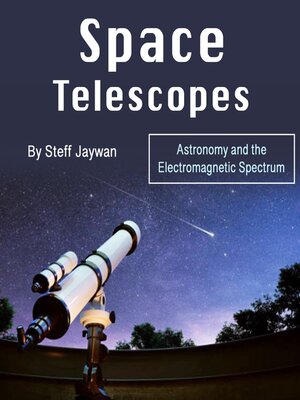Space Telescopes
audiobook (Unabridged) ∣ Astronomy and the Electromagnetic Spectrum
By Steff Jaywan

Sign up to save your library
With an OverDrive account, you can save your favorite libraries for at-a-glance information about availability. Find out more about OverDrive accounts.
Find this title in Libby, the library reading app by OverDrive.



Search for a digital library with this title
Title found at these libraries:
| Library Name | Distance |
|---|---|
| Loading... |
Space telescopes are powerful instruments designed to observe astronomical objects and phenomena from outside the Earth's atmosphere. Unlike ground-based telescopes, which suffer from atmospheric distortion, space telescopes provide a clearer and more detailed view of the universe. They have revolutionized our understanding of the cosmos by capturing images and data across various wavelengths of light, from visible to infrared to ultraviolet and beyond.
The primary advantage of space telescopes is their ability to operate above the Earth's atmosphere. The atmosphere absorbs and scatters light, which limits the capabilities of ground-based observations. By placing telescopes in space, astronomers can avoid these issues and achieve several key benefits. Space telescopes have an unobstructed view, not being affected by weather, daylight, or atmospheric turbulence, allowing for continuous and consistent observations. They also have broader wavelength coverage, as Earth's atmosphere blocks many wavelengths of light, such as ultraviolet and X-rays. This enables space telescopes to detect and study these wavelengths, offering a more comprehensive view of the universe. Moreover, without atmospheric distortion, space telescopes can capture sharper and more detailed images.







